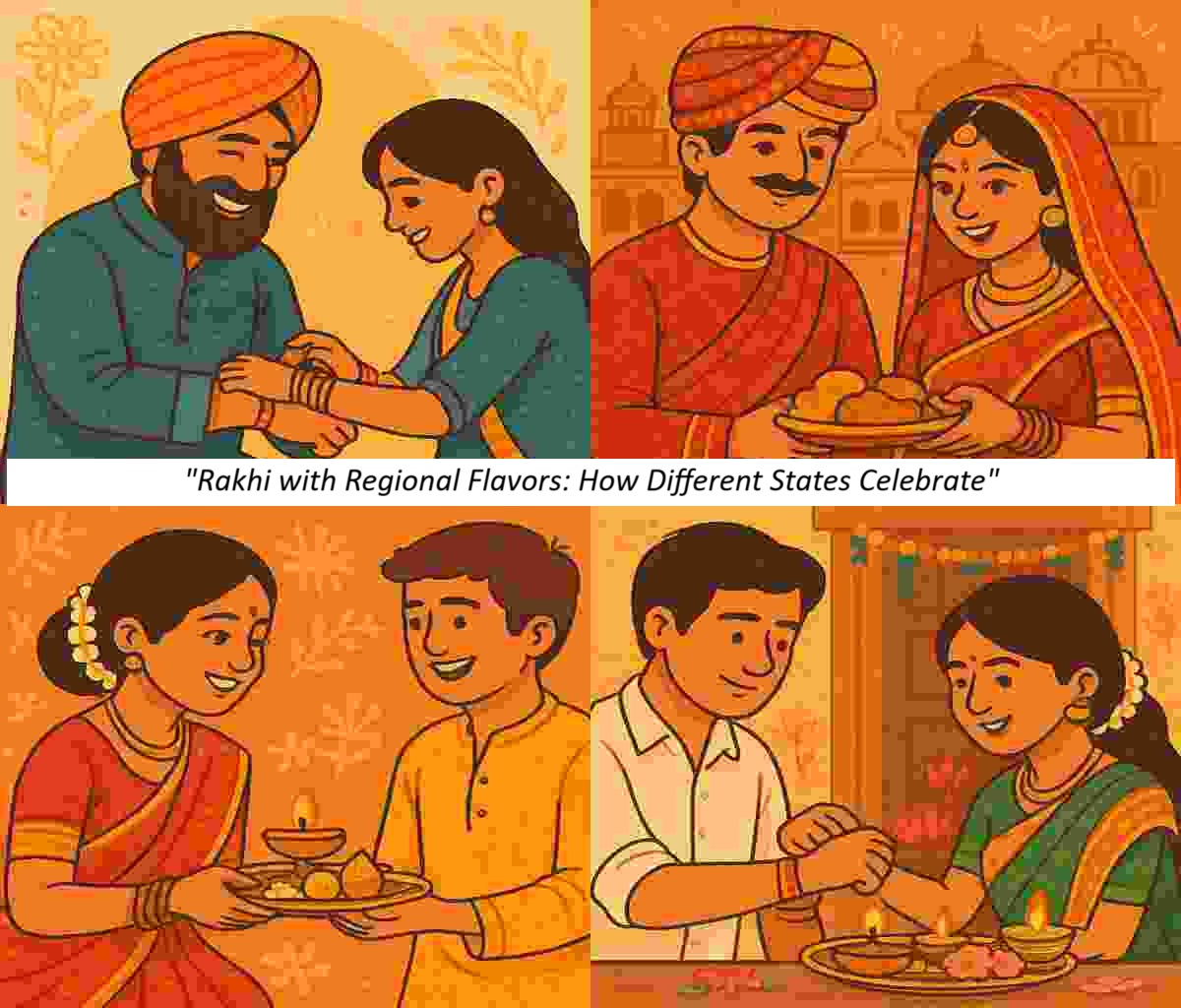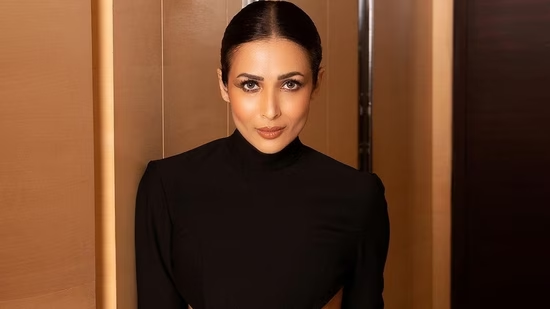“From Rajasthan’s royal traditions to Kerala’s simple gestures — discover how India’s diverse states add their own flavor to Raksha Bandhan celebrations.”
Raksha Bandhan is celebrated with joy and tradition across India, but what makes it even more special is how different states add their own unique flavors to this beloved festival. From regional customs and rituals to food and fashion, here’s how Rakhi becomes a colorful mosaic of India’s diversity.
🕌 Uttar Pradesh & Bihar: Traditional Ceremonies with a Spiritual Touch
In these northern states, sisters tie rakhis early in the morning after a small puja. It’s common to visit temples and seek blessings from family elders. Special dishes like malpua, puris, and kachoris are prepared to mark the celebration.
🏔️ Himachal Pradesh & Uttarakhand: Rakhi Meets Nature
In the hills, Raksha Bandhan is celebrated with eco-conscious rituals. People tie rakhis not just to brothers, but also to trees as a gesture of protection and harmony with nature. Folk songs and pahadi delicacies like siddu and bal mithai add charm.
🌾 Punjab & Haryana: A Festive Blend of Joy and Energy
Known for their lively celebrations, Rakhi in Punjab and Haryana involves vibrant phulkari attire, loud laughter, and elaborate meals. Sisters are often pampered with cash gifts or gold jewelry, and traditional sweets like pinni and patisha are must-haves.
🛕 Rajasthan: Royalty in Rituals
In Rajasthan, Rakhi is deeply rooted in heritage. Sisters prepare a thali decorated with mirror-work and tie beautifully crafted zari rakhis. Gifts often include ornate lehengas or silver coins. Songs like Rakhi aayi veera de ghar echo through homes.
🥥 Maharashtra: Narali Purnima Connection
Raksha Bandhan coincides with Narali Purnima here, where fishermen offer coconuts to the sea for blessings. Sisters tie rakhi, and families enjoy coconut-rich dishes like narali bhaat and modak. Marathi folk songs play in the background.
🏞️ West Bengal: Bhai Phonta’s Rakhi Twist
While Bhai Phonta (a similar sibling festival) is observed after Diwali, Rakhi is still celebrated with enthusiasm in many Bengali families. Sisters perform aarti and apply tilak before tying rakhis, and enjoy rosogolla and sandesh together.
🌶️ Gujarat: Raksha Bandhan with a Sweet-Spicy Twist
Gujaratis love their food, and Rakhi is incomplete without a thali full of undhiyu, dhokla, and shrikhand. Families dress in vibrant ethnic wear, and celebrations often include garba or folk dance at night.
🛶 Kerala & Tamil Nadu: Quiet Yet Meaningful Observances
While Raksha Bandhan isn’t traditionally part of South Indian culture, many urban families have embraced it. In Kerala and Tamil Nadu, the festival is celebrated simply, often with a rakhi, sweets, and small gifts. Banana chips and payasam add a regional touch.
🎭 Odisha & Chhattisgarh: Rakhi Meets Folk Festivals
In Odisha, Raksha Bandhan aligns with Gamha Purnima, where people tie rakhis to cows and bulls as a mark of gratitude. Chhattisgarh sees tribal communities adding local dance, folk art, and music into the Rakhi spirit.
📿 North-East India: Rakhi With Cultural Grace
States like Assam, Manipur, and Nagaland celebrate Raksha Bandhan with school events, cultural exchanges, and family get-togethers. Bamboo-based crafts and handwoven rakhis are popular, while local sweets like pitha and lai are shared.
🌍 Raksha Bandhan: A Thread that Binds, in 100 Languages
Despite regional differences, the emotion of Rakhi remains universal — a celebration of protection, love, and lifelong bonding. Whether you’re tying a rakhi in a Rajasthani haveli or on a Kerala houseboat, the sentiment is the same.
Also Read : Rakhi for Pets: Celebrating the Furry Siblings



